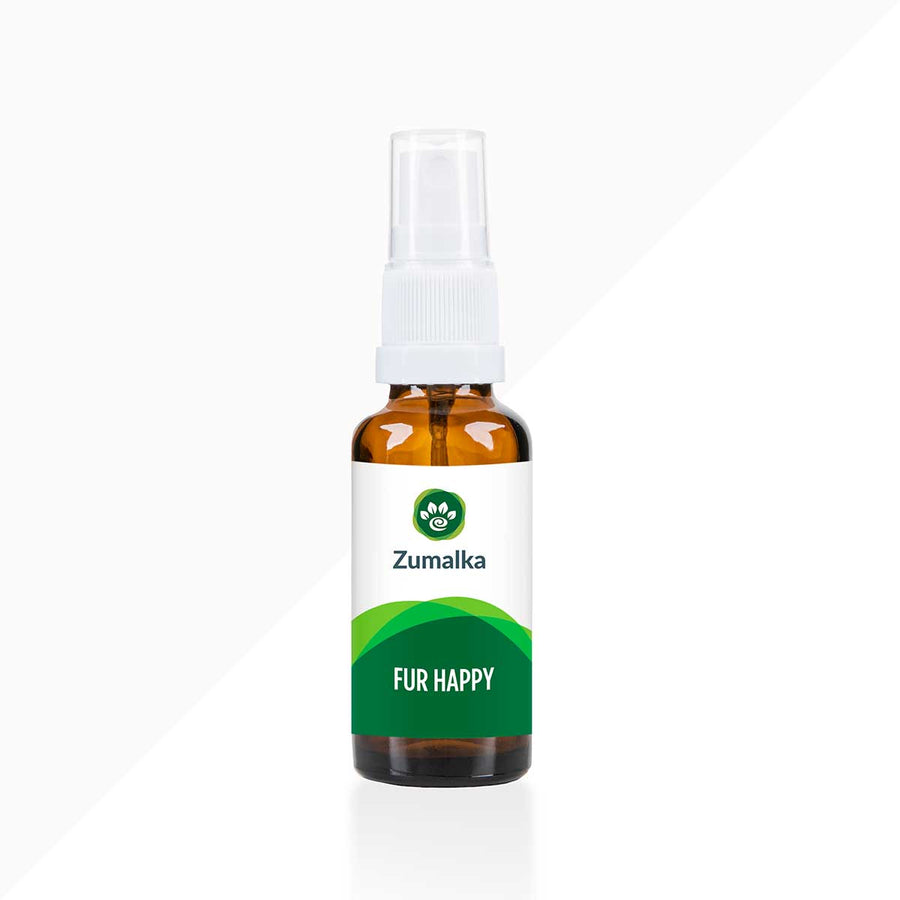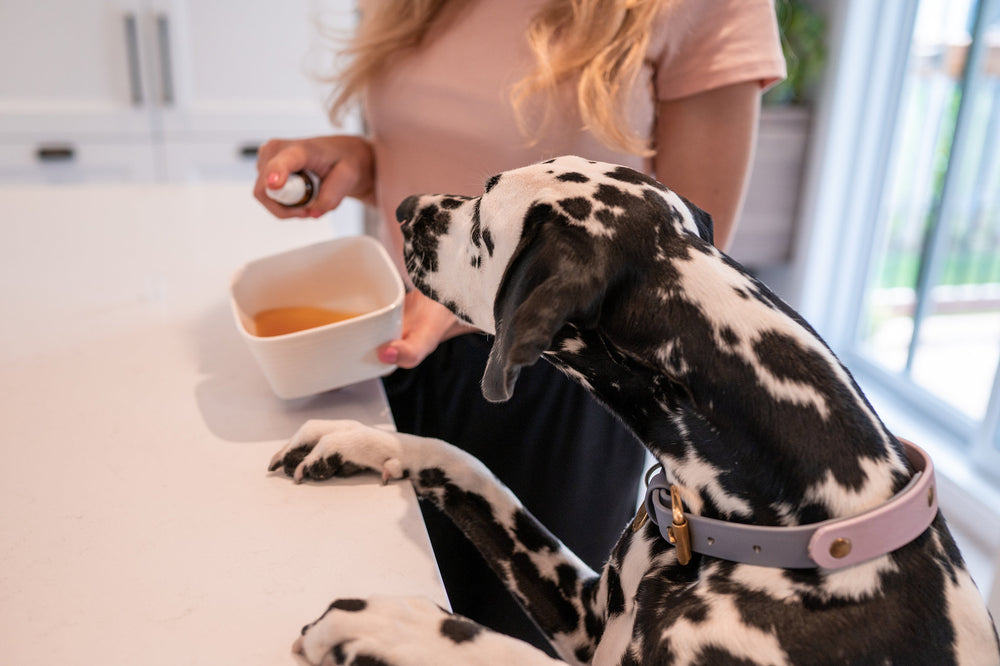9 Vet-Approved Tips to Keep Your Senior Poodle’s Coat Beautiful
List of Contents
Poodles are known for their iconic, dense, curly coats, a hallmark of the breed’s elegance and charm. As they age, maintaining coat health becomes essential to ensure comfort, appearance, and overall well-being.
Although often considered hypoallergenic due to their low-shedding coats, Poodles require consistent grooming to maintain healthy and mat-free hair. Their unique curls trap debris and loose strands, making regular maintenance essential throughout the year.
In their senior years, Poodles often experience changes in their coat, such as fading color, thinning hair, and increased skin sensitivity. This guide shares expert tips to maintain your aging Poodle’s coat health, softness, and overall comfort.
9 Expert Tips for Maintaining a Healthy, Beautiful Coat in Senior Poodles
Maintaining your aging Poodle’s coat isn’t as complicated as many pet parents think. This section covers essential tips to help keep your senior Poodle’s coat healthy, soft, and beautiful with ease.
#1. Brush your Poodle regularly and gently to prevent matting as they age.

A Poodle’s tight, curly coat easily traps loose hairs, making it prone to tangles and matting. Brushing at least three to four times a week, ideally daily, helps keep their coat smooth, healthy, and mat-free.
Begin with a slicker brush to remove loose hair, debris, and tangles from your Poodle’s undercoat. Follow with a bristle brush to smooth the outer coat, and use a comb to catch any remaining knots.
As Poodles age, their skin becomes more delicate, making gentle grooming essential to avoid irritation. Regular brushing also helps distribute natural oils, keeping their coat moisturized, shiny, and healthy.
Brushing your senior Poodle regularly helps prevent skin problems and promotes overall coat health. It also gives you the chance to spot early signs of parasites or underlying health concerns.
#2. Establish a balanced bathing routine for your senior Poodle.
Regular baths help keep your aging Poodle’s coat clean, soft, and free of dirt and buildup. Use a gentle, pH-balanced dog shampoo and rinse thoroughly to prevent skin irritation and residue.
Over-bathing can strip your senior Poodle’s skin of essential oils, leading to dryness and irritation. Most Poodles only need a bath every 4 to 8 weeks, unless they become filthy.
For most older Poodles, bathing every 4 to 6 weeks is ideal to maintain coat health and cleanliness. More frequent baths, every 3 to 4 weeks, may be needed for active dogs or those prone to getting dirty.
After bathing, thoroughly dry your aging Poodle’s coat using a professional or low-heat blow dryer to avoid trapping moisture against the skin. Proper drying helps prevent irritation, hot spots, and other moisture-related skin issues.
#3. Promote healthy skin and coat with Omega-3 fish oils.
Older Poodles often experience skin and coat concerns such as dryness, flakiness, and itchiness, especially as they age. Omega-3 fish oil supplements can help reduce irritation and restore a soft, shiny, and healthy coat.
Omega-3 fatty acids like EPA and DHA soothe inflammation and itchiness, promoting healthier skin and a shinier, softer coat. They’re especially valuable for aging Poodles, as they also ease joint stiffness and enhance grooming comfort.
Moreover, Omega-3s also strengthen the immune system and help manage allergies that often show up as skin and coat issues. Always choose a high-quality, dog-specific supplement and consult your veterinarian or pet homeopathy expert before adding it to your aging Poodle’s routine.
#4. Protect your older Poodle’s coat color from sun damage.

Poodles display a variety of coat colors, but sun exposure, aging, and genetics can cause fading, especially in lighter-colored dogs. Protecting your senior Poodle from excessive sunlight helps maintain coat vibrancy and long-term color quality.
To preserve your aging Poodle’s coat color, limit sun exposure and protect against harmful UV rays. Use dog-safe sunscreen on sensitive areas like the nose and ears, along with protective clothing and regular conditioning to shield the coat.
Offering shaded areas during sunny days helps protect your older Poodle’s coat and skin from harmful UV rays. Simple measures like resting under a tree or using a canopy can prevent sun-related damage and fading.
#5. Keep your senior Poodle looking great with professional grooming.
Poodles are known for iconic grooming styles like the Continental and Puppy clips, which highlight their unique coat texture. While basic maintenance can be done at home, professional grooming ensures proper trimming, shaping, and overall coat health.
Professional groomers start introducing tools like clippers as early as six weeks to build comfort and trust. For aging Poodles, regular trims are essential to prevent matting, promote even coat growth, and simpler styles like the puppy cut or lamb clip make at-home maintenance easier.
Consistent trims help maintain an even coat texture and distribute color more uniformly, reducing patchiness and fading. This supports a vibrant, healthy-looking coat in aging Poodles.
#6. Protect coat color by avoiding harsh chemicals and using dog-safe products.
Sulfates, parabens, and artificial dyes can damage your senior Poodle’s coat by stripping natural oils, leading to dryness, dullness, and color fading. These harsh chemicals may also irritate sensitive skin and affect overall coat health.
To keep your aging Poodle’s coat vibrant and healthy, use color-safe, dog-specific shampoos and conditioners. Opt for formulas with natural ingredients like aloe vera or oatmeal to gently nourish the coat and protect sensitive skin.
Conditioners enriched with mink oil help enhance your older Poodle’s natural coat color and add a healthy shine.
#7. Regular vet visits help catch underlying conditions early.

Not all skin and coat issues can be solved through grooming alone. Changes in your senior Poodle’s coat may signal underlying health conditions that require veterinary attention for proper diagnosis and treatment.
Common coat issues in Poodles include allergies, parasites, sebaceous adenitis, castration responsive dermatosis in males, and hypothyroidism, which can cause abnormal coat texture or hair loss. Female Poodles may also experience shedding due to hormonal changes during heat cycles or after whelping.
Regular veterinary check-ups are essential for monitoring coat health, refining grooming practices, and receiving personalized advice on nutrition or supplements. Early detection and treatment of issues are especially important for aging Poodles, who are more prone to health-related coat changes.
Consulting a pet homeopathy specialist can also offer valuable guidance on natural remedies to support your older Poodle’s coat and overall health.
#8. Keep your senior Poodle’s eyes and ears clean and healthy.
Aging Poodles are prone to tear staining, which appears as reddish-brown streaks beneath the eyes. Gently wiping the area daily with a damp cloth helps prevent buildup and keeps the face clean and healthy.
Due to their floppy and hairy ears, older Poodles are more susceptible to ear infections caused by trapped moisture and debris. Routine ear cleaning and trimming around the ear canal help improve airflow and reduce the risk of infection.
Neglecting ear care can cause discomfort and lead to serious infections in senior Poodles. Regularly check for redness, swelling, or odor, and consult your veterinarian or qualified pet homeopath at the first sign of a problem.
#9. Choose trusted natural grooming products for your aging Poodle.
Zumalka's EAR CARE is a natural option formulated to help support your Poodle’s ear health by targeting issues like inflammation, discharge, odor, and discomfort. Maintaining healthy ears in senior Poodles contributes to overall comfort and grooming ease, helping preserve coat condition and well-being.
TARTAR CONTROL is a natural, easy-to-administer premium product that helps reduce tartar buildup, combat bad breath, and support overall oral health. Healthy teeth and gums in senior Poodles contribute to better nutrition, which plays a key role in maintaining a strong, vibrant coat.
Zumalka's GUMHAPPY is a gentle formula that features a blend of four active homeopathic ingredients traditionally used to help maintain healthy gums and promote general oral well-being. GUMHAPPY offers a safe and easy-to-administer option as part of your pet’s wellness routine.
Conclusion
Caring for your aging Poodle's beautiful coat is more than just a grooming routine. It’s essential to their health, comfort, and quality of life, especially as they age. Regular maintenance supports skin health, prevents matting, and keeps your Poodle looking and feeling their best.
Consistent grooming practices, such as gentle brushing, consistent ear cleaning, proper bathing, balanced nutrition, and regular health checks, help your senior Poodle stay healthy, comfortable, and radiant. These habits not only enhance their well-being but also strengthen your bond for many joyful years together.
FAQs
How can I improve my Poodle's coat?
To improve your Poodle’s coat, brush regularly to prevent matting, bathe with gentle dog shampoo, provide a balanced diet rich in omega-3s, and schedule consistent grooming to promote shine, softness, and overall coat health.
At what age do Poodles go through a coat change?
Poodles usually experience their coat change between 9 and 16 months, transitioning from soft puppy fur to a thicker, curlier adult coat that demands consistent grooming to maintain health and prevent matting.
How do you moisturize a Poodle's hair?
To moisturize a Poodle’s hair, use a dog-safe leave-in conditioner or moisturizing spray after bathing, and choose shampoos with natural oils. Regular brushing helps distribute oils, keeping the coat soft, hydrated, and tangle-free.
Apply a teaspoon or tablespoon of coconut oil to your hands (depending on the size of your dog), rub your palms together to warm it up and distribute it evenly, then massage it into your dog's fur.
Can you keep a Poodle's hair long?
Yes, you can keep a Poodle’s hair long with regular grooming, including daily brushing, frequent trims, and proper coat care. Long coats require commitment to prevent matting and maintain a healthy, elegant appearance.
How often should you bathe a Poodle?
You should bathe a Poodle every 3 to 4 weeks using a gentle, dog-friendly shampoo. Regular bathing helps maintain coat health, reduces odors, and prevents skin issues while supporting their signature curly coat.
What are Poodles' weaknesses?
Poodles can be prone to anxiety, ear infections, and certain genetic conditions. Their high intelligence and active nature require regular mental stimulation, while their dense, curly coats demand consistent grooming to prevent matting and discomfort.
Is it better to brush a Poodle wet or dry?
It’s best to brush a Poodle when the coat is damp, not soaking wet or completely dry, to prevent breakage, reduce frizz, and make detangling easier for healthier, mat-free curls.
How long can a Poodle hold its pee?
An adult Poodle can typically hold its pee for 6 to 8 hours, while puppies may only last 1 to 2 hours. Regular potty breaks support bladder health and help prevent indoor accidents.
How often do you trim a Poodle's hair?
Poodle hair should be trimmed every 4 to 6 weeks to maintain coat health, prevent matting, and keep their appearance neat. Regular grooming also supports skin hygiene and showcases their signature style.
What is considered old for a Poodle?
A Poodle is generally considered a senior around age 7, though this may vary by size. Smaller Poodles tend to live longer, and aging signs often include slower movement, graying fur, and increased rest.
At what age do Poodles stop fading?
Poodles typically stop fading around 2 to 3 years of age, when their adult coat color stabilizes. This natural fading process, known as “clearing,” varies by genetics, coat type, and original color.
At what age do Poodles slow down?
Poodles often begin to slow down around 7 to 9 years of age, depending on size and health. Signs include reduced energy, longer naps, and less play, marking the transition into their senior years.









I found your guide on grooming aging Poodles to be very informative and helpful. As a Poodle owner, I appreciate the specific tips you provided for their changing needs. The emphasis on gentle care is crucial and I’m looking forward to reading more insightful articles on pet health. Thank you for sharing your expertise.
Leave a comment